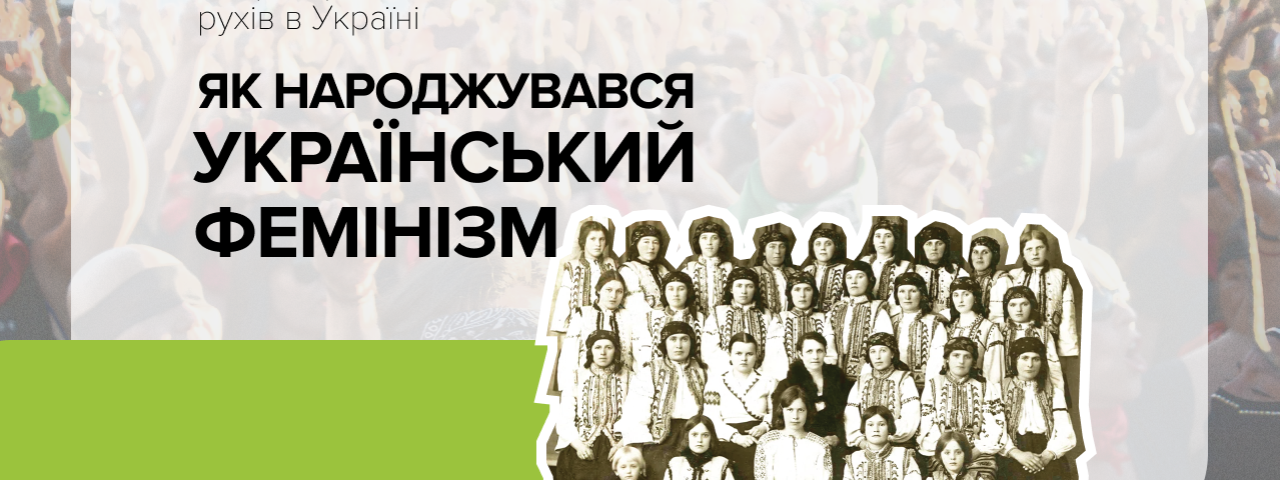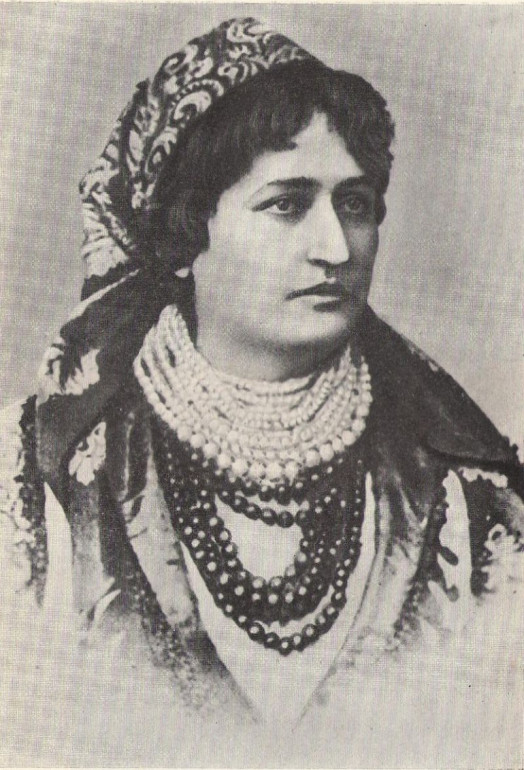How Ukrainian feminism was born

Civil society is not only about advocating for reforms, volunteering and CSOs. It is also about acts of civil disobedience that directly affect the life of an entire country. In the category "Civil Society Stories", we will tell you about social movements, protests, and revolutions that have had a significant impact on the history of our country. In this text, we will explore how Ukrainian feminism was born more than 100 years ago and what role women's organisations played in shaping the statehood.
Ukrainian feminism of the late 19th and early 20th centuries was called "pragmatic feminism" or "feminism of action". Its main principle is to support practical solutions that help women in building their careers and other areas of life, instead of just discussing gender inequality without taking concrete action.
Ukrainian women, along with Czechs, were the first in the Austro-Hungarian Empire to demand that girls be allowed to attend secondary schools and universities. In Ukraine, the movement for women's education began in the 19th century. In 1834, the first women's gymnasium in Ukraine was opened, but girls were not allowed to complete their education because women's education was seen as unfavourable to family life at the time. However, in 1898, the Ukrainian Women's Gymnasium was founded in Lviv, which became one of the largest women's educational institutions in the Austro-Hungarian Empire.
The first feminist organisations
"The Society of Ruthenian Ladies”, the oldest organisation of Galician women, was founded in 1878 and was led by Natalia Kobrynska. The members of this society, who consisted mainly of nobility, developed projects to improve the living conditions and education of women.
One of the main objectives of the Society of Ruthenian Ladies was to raise the level of education among women, as only a limited number of women from the nobility had access to higher education at the time.
The members of the society raised funds for the establishment of women's gymnasiums and helped women to obtain higher education. They also opened courses to prepare women for university.
In addition, members of the Society of Ruthenian Ladies were engaged in charity work. They helped poor and sick women, and they also ran women's shelters that provided work and accommodation for women.
The founder of the Society of Ruthenian Ladies, Natalia Kobrynska, was the first Ukrainian feminist theorist and the first woman to found a secular women's organisation. Before that, there were women's associations at churches.

Kobrynska believed that women's emancipation was a precondition for the liberation of the Ukrainian people. She favoured practical activities over ideology and argued that women needed to work outside the home.
The heyday of Ukrainian feminism
In the early 1920s, the “Union of Ukrainian Women” was founded in Ukraine, later led by the famous writer and activist Milena Rudnytska. Its members demanded that women should participate in politics on an equal footing with men, in particular to jointly advocate for the national issue.
The organisation demanded women's voting rights and women's participation in government, spoke out against violence against women, and demanded the adoption of laws that would protect women from discrimination at various levels.
"The Union of Ukrainian Women" had more than 60,000 members in the 1930s. Many of its members later went underground and participated in the insurgency.

Who is Milena Rudnytska?
One of the first leaders of the Women's Union, Milena Rudnytska is considered to be the most famous activist of the feminist movement in Ukraine in the last century. She founded several women's organisations, acted as a leader and organiser, and worked with international women's organisations.
During the Second World War, she joined the Ukrainian Insurgent Army (UPA) and played an important role in the creation of women's battalions. She held the position of commander of the women's battalion called "Olesia", where she trained and organised female fighters, carried out reconnaissance missions and participated in battles with the Nazi occupiers.
Milena Rudnicka has been actively involved in the activities of the International Women's League for Peace and Freedom since its establishment in 1919. She played a leading role in the struggle for women's rights and equality in society. She participated in numerous international conferences and meetings of the International Women's League, where she delivered speeches and presented her research on the situation of women in Ukraine.
She has also collaborated in the development and signing of various international documents on women's rights, including the Geneva Convention on the Political Rights of Women.
One of Rudnytska's greatest achievements in cooperation with the International Women's League is the establishment of the Ukrainian Workers' Women's Council in Ukraine to unite female workers and fight for their rights. The Council organised courses for women, held protests and protected their rights in case of violations.
Repression
In the 1930s, the Stalinist regime launched a campaign to fight "bourgeois feminism", which was perceived as the ideology of class enemies. Ukrainian feminists were included in this category, and their actions were subject to repression. Many activists were sentenced to prison or deported to Siberia.
For example, Kateryna Zaremba was arrested in 1937 and sentenced to 8 years in prison for "anti-Soviet agitation and propaganda." She was charged with promoting feminist ideas and supporting national movements.
Nadezhda Surovtseva was sentenced to 10 years in prison in 1937 for "attempting to organise an anti-Soviet organisation". She was a member of the Communist Party, but began to criticise the party's policies towards women and national minorities.
Olena Teliha, a Ukrainian nationalist who was an activist of the Organisation of Ukrainian Nationalists, was detained and imprisoned by the Soviet government in 1947. After long interrogations and beatings, she died in prison.
Mariia Pryimachenko, a Ukrainian writer and civic activist who worked for women's rights, was arrested by Soviet security forces in 1937 and accused of "counter-revolutionary activity". She was sentenced to eight years in prison and then sent to forced labour in the forest, where she died in 1954.
In 1938, the Polish authorities banned the Union of Ukrainian Women. In the autumn of 1939, the Soviet authorities finally liquidated the union.
The myth of Soviet feminism
Over time, the concept of the "hero-woman" emerged in Soviet ideology, who was portrayed as a strong and independent woman who fought in the war and built socialism alongside men. However, this image did not correspond to reality at all.
The Soviet authorities distorted the concept of feminism and used it for their own political purposes. The government believed that full equality between the sexes had already been achieved in Soviet society, and therefore banned any organisations that fought for women's rights.
Instead, the communist regime used the term "women's issue" to reduce women's rights to economic and social issues.
In addition, Soviet propaganda tried to change the perception of women's role in society and reduce their efforts to fulfilling class duties. In particular, women were assigned predominantly "women's" jobs, such as childcare, housekeeping and cooking. The Soviet government even introduced a special award called the "Hero Mother", which was given to mothers who gave birth to and raised many children.
Ukrainian feminist organisations, on the other hand, were not even to be mentioned. The first feminist movements resumed their activities only in the late 1980s.


